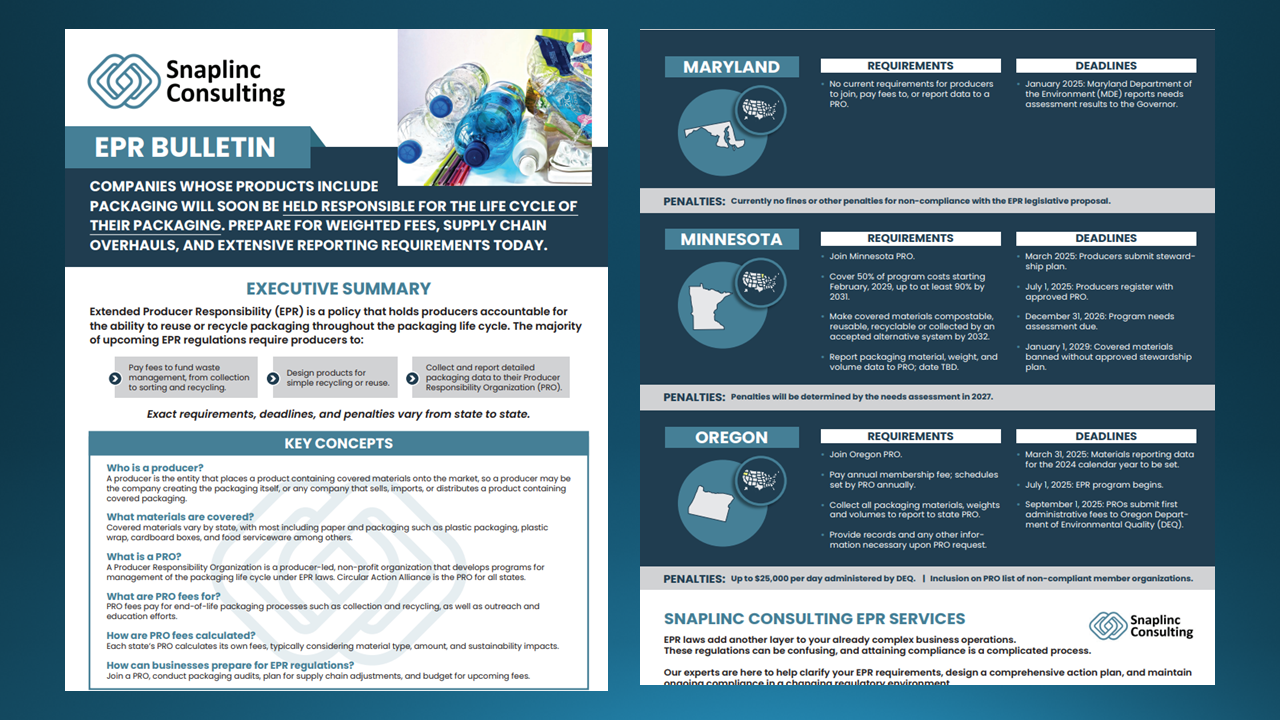EU Restricts PFHxA in Textiles and Apparel
URGENT UPDATE – The European Union has enacted a new regulation effective October 10, 2024. Commission Regulation (EU) 2024/2462 aims to restrict the use of undecafluorohexanoic acid (PFHxA), its salts, and PFHxA-related substances due to their hazardous properties and potential adverse effects on human health and the environment. There are significant penalties for non-compliance.
Let’s Walk Through Compliance:
To Which Companies Does It Apply?
Textile and Apparel Manufacturers and Importers: This regulation directly impacts any company involved in the production, importation, or distribution of textiles, leather, furs, hides, clothing, related accessories, and footwear within the European Union.
Other Affected Entities:
Producers and Distributors of Paper and Cardboard Used as Food Contact Materials: Companies supplying paper and cardboard for food packaging.
Manufacturers of Firefighting Foams and Cosmetics: Entities producing mixtures for the general public, including firefighting foams and cosmetic products.
Is your company affected? Let us guide you to compliance!
What Specific Steps Are Required?
Phase-Out of PFHxA and Related Substances:
By October 10, 2026:
Textiles, Leather, Furs, and Hides in Clothing and Related Accessories for the General Public: Cease the use of PFHxA, its salts, and PFHxA-related substances in these products.
Footwear for the General Public: Ensure footwear products comply with the new concentration limits.
Paper and Cardboard Used as Food Contact Materials: Remove PFHxA substances from these materials.
Mixtures for the General Public and Cosmetic Products: Reformulate products to eliminate restricted substances.
By October 10, 2027:
Other Textiles, Leather, Furs, and Hides for the General Public: Includes items like carpets, rugs, curtains, upholstery, tablecloths, and bed linens.
Adhere to Concentration Limits:
25 parts per billion (ppb) for the sum of PFHxA and its salts.
1,000 ppb for the sum of PFHxA-related substances, measured in homogeneous material.
Implement Compliance Measures:
Supply Chain Evaluation: Assess your supply chain to identify where PFHxA substances are used.
Product Testing: Conduct thorough testing to ensure products meet the new concentration limits.
Documentation: Maintain detailed records demonstrating compliance.
What Is the Timeline?
October 10, 2024: Regulation enters into force and is applicable in all EU Member States.
April 10, 2026: Deadline for phasing out PFHxA substances in fire-fighting foams
October 10, 2026: Deadline for phasing out PFHxA substances in specified products including cosmetics and footwear.
October 10, 2027: Extended deadline for phasing out PFHxA in other textiles and materials.
What Are Penalties for Non-Compliance?
Companies that fail to comply with Regulation (EU) 2024/2462 may face:
Regulatory Action: Prohibition from placing non-compliant products on the EU market.
Financial Penalties: Significant fines imposed by EU member states.
Reputational Damage: Loss of consumer trust and potential boycotts.
Legal Consequences: Possible legal action from regulators or affected parties
Compliance Recommendations
Assess Your Product Lines:
Determine which of your products fall under the scope of the new regulation.
Evaluate Alternatives:
Research and invest in alternative substances that meet performance requirements without the associated risks.
Develop a Compliance Plan:
Immediate Action: For products with the 2026 deadline, initiate changes now.
Extended Planning: Use the additional time for products with the 2027 deadline to implement sustainable solutions.
Engage with Suppliers:
Communicate with your supply chain to ensure all components meet the new standards.
Training and Awareness:
Educate your team about the new requirements to ensure company-wide compliance.
Snaplinc Consulting Support
At Snaplinc Consulting, we specialize in guiding businesses through complex regulatory landscapes, especially in sustainability and supply chain management. Our services include:
Regulatory Gap Analysis: Identify areas where your company may not meet the new EU requirements.
Policy Development: Craft policies that align with best practices and regulatory standards.
Supply Chain Auditing: Evaluate your suppliers for compliance risks.
Training Programs: Equip your staff with the knowledge to maintain compliance.
Reporting Assistance: Document and demonstrate your compliance effectively.
The deadlines are critical, and non-compliance poses risks of hefty fines and reputational damage. Prompt action is not only a legal necessity but also an ethical commitment, enhancing your brand's integrity.
Conclusion
Regulation (EU) 2024/2462 marks a significant shift in the European Union's approach to chemical safety in consumer products, particularly textiles and apparel. Snaplinc Consulting is ready to ensure your seamless transition to compliance, fortifying your business against risks and fostering ethical global supply chain practices.
Contact us for tailored guidance and join us in building a sustainable, responsible business landscape.
For more questions or to request a discovery call, contact us below and/or directly schedule a meeting.
At Snaplinc Consulting, your compliance is our priority. Let's navigate this new regulation together for a safer, more sustainable future.




